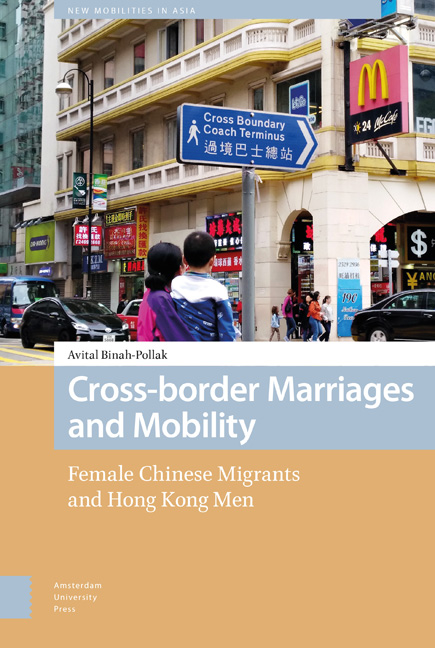Book contents
- Frontmatter
- Contents
- List of Figures and Tables
- Acknowledgments
- Introduction
- 1 The Hong Kong-China Border: A Space of Confinement and Movement
- 2 Motivations for Crossing Borders
- 3 ‘Same as Before, Living as a House Wife’
- 4 Hong Kong's Education: A Bridge to the ‘First World’
- 5 New Voices in Hong Kong: Local Identity Formation
- Concluding Thoughts: Home Is not where the Heart Is but where it Wants to Be
- Bibliography
- Index
4 - Hong Kong's Education: A Bridge to the ‘First World’
Published online by Cambridge University Press: 21 November 2020
- Frontmatter
- Contents
- List of Figures and Tables
- Acknowledgments
- Introduction
- 1 The Hong Kong-China Border: A Space of Confinement and Movement
- 2 Motivations for Crossing Borders
- 3 ‘Same as Before, Living as a House Wife’
- 4 Hong Kong's Education: A Bridge to the ‘First World’
- 5 New Voices in Hong Kong: Local Identity Formation
- Concluding Thoughts: Home Is not where the Heart Is but where it Wants to Be
- Bibliography
- Index
Summary
After bringing our children to kindergarten on one Friday morning, I went with A-lin to have breakfast in a Western-style cafe in Sheung Shui Centre. A-lin's son's kindergarten ended at 5 PM every day, and since her spouse’s workplace was outside of Hong Kong, he returned home only on Friday nights. As a result, A-lin felt quite bored at home. She said that before their son was born, they used to go to Starbucks, drink coffee, and listen to music, and she had liked it very much. She told me that they had a wonderful relationship and that her husband was quite good to her and to her family, but then she added: ‘I really don't know why he married me. He was born in a very good hospital, went to good kindergartens and schools, has a master's degree and I didn’t do anything with my life.’ This excerpt demonstrates the importance A-lin placed on education and the close connection she made between education and a person's socio-economic status. Linking the hospital where her husband was born with his academic achievements stresses her perception that the journey to achieve upward social and economic mobility begins at the very first stages of a person's life. While comparing her spouse's accomplishments to her lack of education signified the hierarchy that characterized their marriage, her description of the activities they enjoyed together also signified the complex forms of emotions their marriage generated. A-lin's views were common among Shueng Shui marriage migrants as well as mainland marriage migrants who lived in other areas of Hong Kong. They often expressed the importance of their children's education and the close connection between Hong Kong's education system and their children's future.
Education is often perceived as a means for obtaining geographical, social, cultural, and economic mobility. Previous research has indicated that parents’ academic guidance, preparation and planning for educational aspiration are related to children's educational attainment (Levine and Havighurst, 1992). In many cases, parents’ motivation for helping their children get what is usually referred to as ‘high quality education’ or ‘good education’ stems from the lack of opportunities in a specific region or home country. In contemporary China, education in its various forms is often considered a dream of experiencing the ‘other’ and searching for a ‘better life’.
- Type
- Chapter
- Information
- Cross-border Marriages and MobilityFemale Chinese Migrants and Hong Kong Men, pp. 115 - 146Publisher: Amsterdam University PressPrint publication year: 2019

